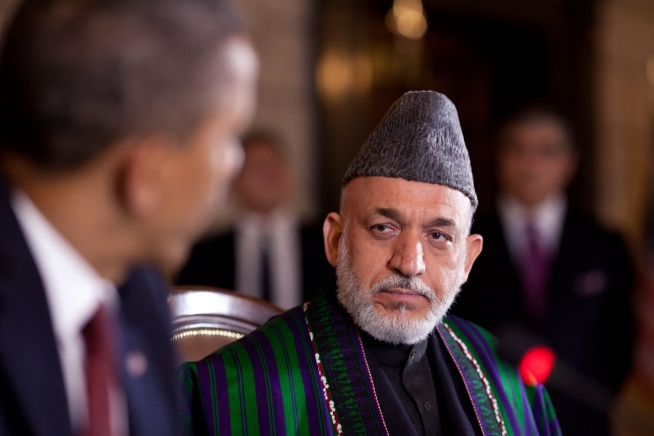The Afghan government said Tuesday it expects to take full control by next week from the United States of the Bagram prison, which holds up to 3,000 inmates, many of whom have been detained without charge or trial and severely abused.
 Back in March, the US gave in to demands from Afghan President Hamid Karzai to give full control of the Bagram detention center to the Afghan government as part of the transition to withdraw most US troops from the country in 2014.
Back in March, the US gave in to demands from Afghan President Hamid Karzai to give full control of the Bagram detention center to the Afghan government as part of the transition to withdraw most US troops from the country in 2014.
Early this year, an Afghan investigative commission accused the American military of abusing detainees in the Bagram prison facilities, prompting Karzai’s push on the issue. Attorney for Human Rights First Daphne Eviatar said in a recent CBS interview of Bagram that “It’s worse than Guantanamo, because there are fewer rights.”
But Afghan control of prisons is unlikely to be much better. Back in October, the United Nations released a report which found that detainees in Afghan-controlled prisons were hung from the ceilings by their wrists, severely beaten with cables and wooden sticks, had their toenails torn off, were treated with electric shock, and even had their genitals twisted until they lost consciousness. The study, which covered 47 facilities sites in 22 provinces, found “a compelling pattern and practice of systematic torture and ill-treatment.”
In one sense, the treatment of detainees will be criminal whether Washington or Kabul is in control. But in another sense, the Kabul government is supported by the United States with money, arms, and training, and will continue to be after the transfer takes place. So really the US is responsible for the poor treatment in either case.
Under the agreement, Afghan authorities are required to inform the US of any plans to release any prisoners and “consider favorably” objections if the American government. In other words, the system of indefinite detention that has prevailed at Bagram will remain.
“Contrary to the Obama administration’s stated goals of increasing Afghan sovereignty and strengthening the rule of law in Afghanistan,” said Tina M. Foster, Executive Director of the International Justice Network, “this aspect of the transition will leave a dangerous legacy of unchecked and limitless power in the hands of whoever takes control of the country long after coalition forces have withdrawn.”
“The power to detain perceived enemies of the state indefinitely and without trial will not only lead to more arbitrary arrests and human rights abuses,” Foster added, “but will continue to fuel the insurgency for years to come – it is a great victory for the Taliban and a great loss for the Afghan people.”


